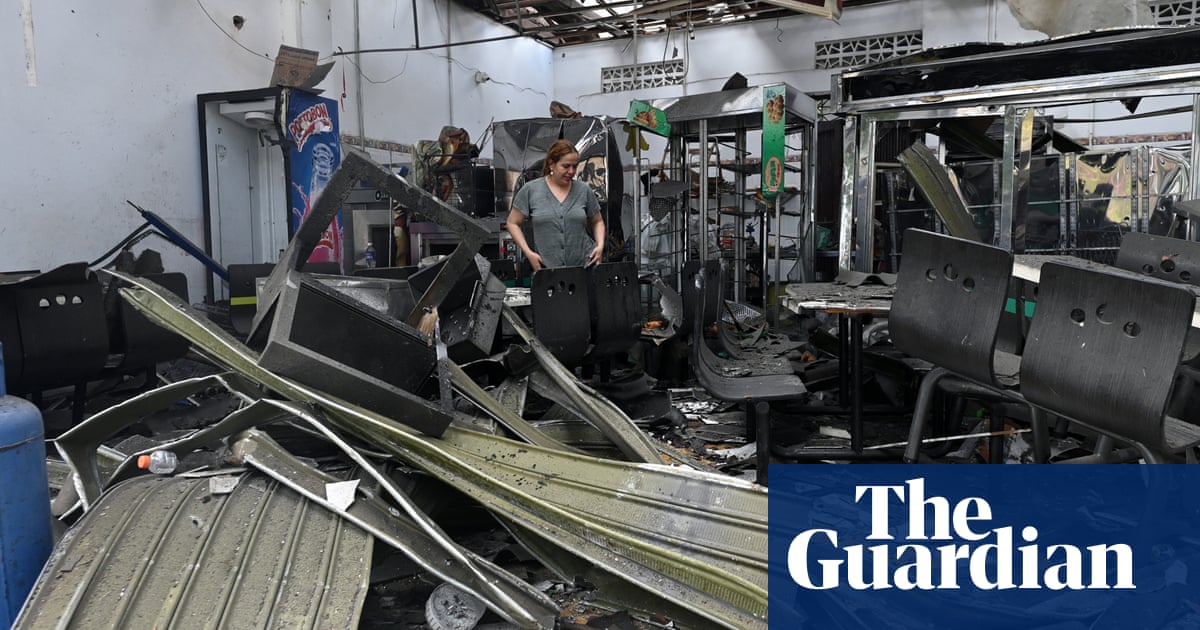Colombiahas been rocked by a string of coordinated bomb and gun attacks that killed at least four people across the country’s south-west, deepening a security crisis roiling the Andean country.
Police said attackers launched 19 attacks on targets in Cali – the country’s third largest city – and several nearby towns, hitting police posts, municipal buildings and civilian targets.
The national police chief, Carlos Fernando Triana, said assailants had attacked targets with car bombs, motorcycle bombs, rifle fire and a suspected drone.
“There are two police officers dead, and a number of members of the public are also dead,” he said.
Police later said at least two civilians were among those killed, and 12 others were injured.
In Cali and the towns of Villa Rica, Guachinte and Corinto, AFP journalists witnessed the tangled wreckage of vehicles surrounded by scorched debris.
The assaults came days after theattempted assassinationof a presidential candidate in Bogotá put the country on edge.
Many Colombians are fearful of a return to the violence of the 1980s and 1990s, when cartel attacks, guerrilla violence and political assassinations were commonplace.
In the town of Corinto, resident Luz Amparo was at home when the blast gutted her bakery.
“We thought it was an earthquake,” she told AFP. “My husband said: ‘No, they are shooting.’”
Her phone began to ring off the hook, and she went to check on her store. As she rounded the corner, neighbors began to look in her direction.
“Everything was levelled,” she said.
Police and experts blamed Tuesday’s attacks on a dissident faction of the once-powerfulFarcguerrilla group.
Security expert Elizabeth Dickenson of the International Crisis Group said the attacks were likely the work of a group known as the Central General Staff (EMC).
“This is a particularly well-coordinated offensive. It really demonstrates the capacity that the group has built,” she told AFP.
“And I think very alarmingly it demonstrates their ability to conduct operations in the metropolitan area of Cali.”
Dickenson said the group may be trying to stop an ongoing military operation that is reported to have injured or killed the group’s veteran leader, known as “Iván Mordisco”.
“They are trying to raise the cost of that military initiative for the government,” said Dickenson.
In a statement on Tuesday, the EMC warned the public to stay away from military and police installations, but stopped short of claiming responsibility.
The attacks come three days after conservative senator Miguel Uribe, 39, was shot twice in the head at close range by an alleged hitman while campaigning in Bogotá.
That attack has stunned Colombians, prompted speculation about who was responsible and raised questions about the response of the country’s president, Gustavo Petro.
Petro has speculated on social media that the hit was ordered by an international “mafia” and claimed thatUribe’s security detailwas suspiciously reduced the day he was shot.
On Tuesday, a 15-year-old pleaded not guilty to carrying out the attempted assassination. The government believes he was a hired gun.
